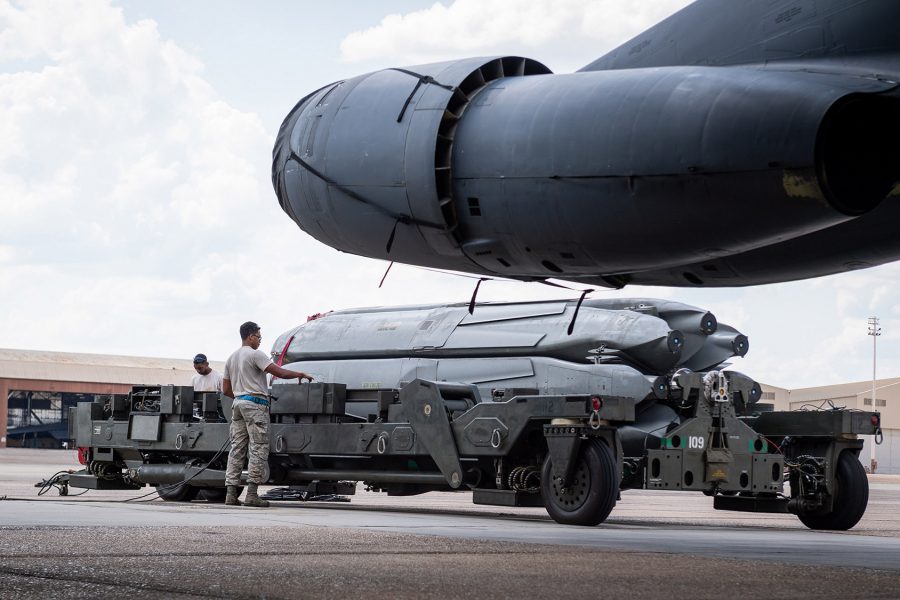The U.S. has consulted with allies regarding its ongoing Nuclear Posture Review and will continue to do so, the Pentagon said Nov. 8 after a media report indicated other nations have been pressing President Joe Biden not to change American policy on the use of nuclear weapons.
“Without getting into specific details, I mean, for understandable purposes, what I can tell you is that we are, as appropriate, consulting with allies and partners in the course of this review and certainly remain open to listening to and hearing out their perspectives,” Pentagon Press Secretary John F. Kirby told reporters during a briefing.
The Nuclear Posture Review, scheduled to be released in 2022, will likely set U.S. policy for its nuclear weapons arsenal and comes at a key moment. China has dramatically built up its array of intercontinental ballistic missile silos in recent months, while U.S. lawmakers continue to debate whether to modernize several aging legs of the nuclear triad or extend them.
Biden has said in the past that the U.S. should move to a policy of “sole purpose” whereby the sole purpose of American nuclear weapons is to deter nuclear use against the U.S. or its allies. Others, meanwhile, have pushed for a “no first use” policy, whereby the U.S. would pledge to never use nuclear weapons first in a conflict.
The Financial Times reported Oct. 29 that U.S. allies, including the United Kingdom, France, Germany, Japan, and Australia, were all lobbying Biden not to commit to a “no first use” policy, arguing that doing so would weaken deterrence against China and Russia.
Citing two anonymous sources, the Financial Times also indicated that the U.S. sent a “questionnaire” to allies “who provided an overwhelmingly negative response to any changes in nuclear policy.”
On Nov. 8, Reps. Mike Rogers (R-Ala.) and Michael McCaul (R-Texas), ranking members of the House Armed Services Committee and House Foreign Affairs Committee, respectively, announced they had sent a letter to Secretary of State Antony Blinken and Defense Secretary Lloyd J. Austin III, requesting a copy of that questionnaire, as well as “copies of each response received from U.S. allies, and any other cables or memos conveying ally views regarding a potential change in U.S. nuclear declaratory policy.”
That same day, Kirby declined to comment on the letter sent by Rogers and McCaul, saying he had not seen it. Yet while he did not directly confirm the Financial Times report, he did indicate that partner nations were welcome to provide their input on the nuclear posture review.
“I think across the review itself, the views and perspectives of our allies and partners are important and consultations with them and hearing them out and their perspectives has been and will continue to remain important as the review continues down the path,” said Kirby.
“I’m certainly not going to speculate one way or the other about policies inside that review and what that’s going to look like,” Kirby added. “But I would tell you just two things. It has been and remains an inclusive, comprehensive process that’s looking at the broad swath of our strategic deterrent capabilities here in the United States. And number two, any policy decision of that nature is going to ultimately be made by the President of the United States.”
